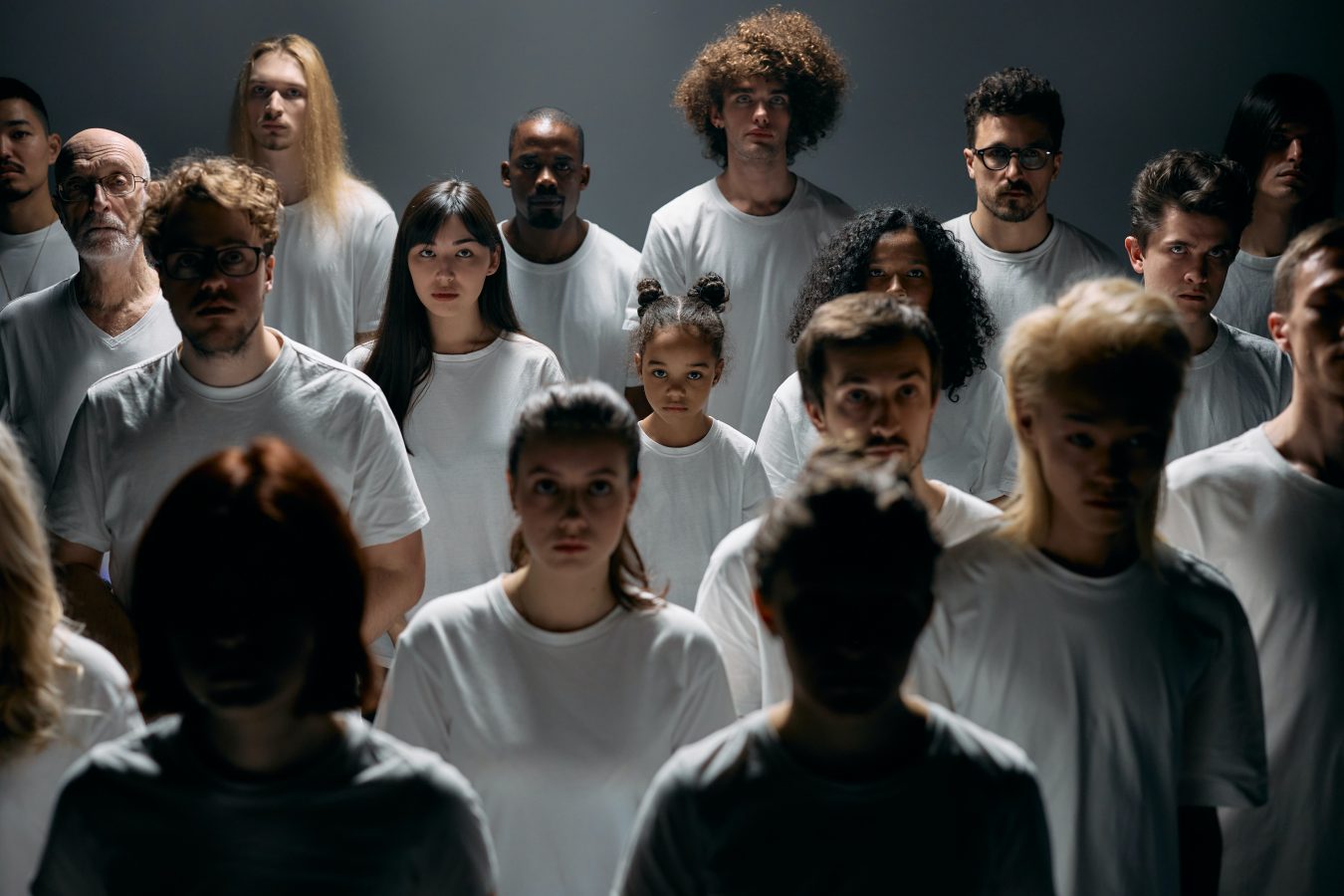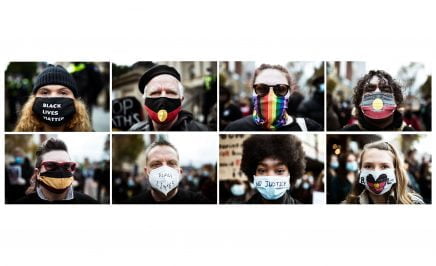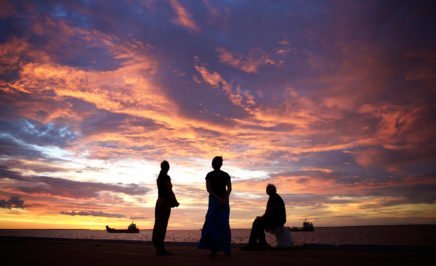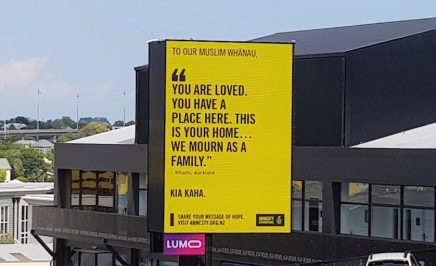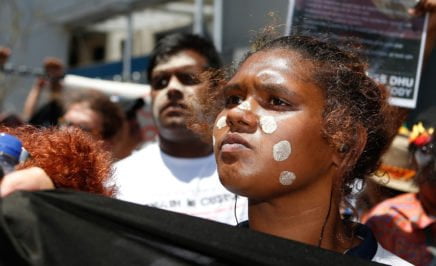Many Australians pride themselves on living in a multicultural society. According to our Government, we live in the most successful multicultural society in the world. Because of this multiculturalism and this celebration of our multiculturalism, many believe that while racism probably exists, it cannot possibly be a major issue.
What do Australians think?
In its inaugural human rights report, the Amnesty International Human Rights Barometer, 84% of Australians believe in freedom from discrimination and 78% believe in freedom of religion and culture.
Almost two thirds of respondents (64%) said that Australia was a successful multicultural society, while only half of respondents (47%) believed there was a problem with racism and more than a quarter thought we didn’t have a problem with racism at all. Worryingly, 63% of the respondents also said they believed that some ethnic groups and cultures don’t want to fit into the “Australian” way of life.
It’s clear then that racism not only exists, it is a growing problem in Australia.
Racism in the last decade
Over the past ten years, racist incidents have been reported in practically all aspects of Australian society from everyday settings such as public transport, to essential institutions such as education and healthcare. One-third of all Australians have experienced racism in the workplace and/or in educational facilities. More than two thirds of students from a non-Anglo background reported facing racism at school.
Just this year, a major survey conducted by the ABC found that a startling 76% of Australians from a non-European background have experienced racial discrimination based on their ethnicity. Understanding the extent of racism in Australia is the first step to eradicating it.
Which Australians face racism the most?
Indigenous Australians
A significant group that faces shocking rates of racism across Australia are Indigenous Australians. Reconciliation Australia reported that in 2020 52% of Indigenous people had recently experienced an incident of racial prejudice in the previous six months. This figure is an almost 10% increase from 2018.
The Australian government in the 2020 National Agreement on Closing the Gap acknowledged that Indigenous people continue to face ‘entrenched disadvantage… and ongoing institutional racism’. This racism extends beyond racist attacks by other Australians and is often felt in institutional settings such as our justice system, healthcare system and educational facilities.
More than half of Indigenous Australians reported facing discrimination in educational institutions. Institutional racism limits access to essential resources and services, denying individuals opportunities and worsening cycles of disadvantage.
Asian Australians
Throughout the COVID-19 pandemic, Asian Australians have faced severe and growing instances of racism. In February 2020, as the pandemic escalated, anti-Asian racism saw a sudden spike, with the Australian Human Rights Commission receiving the highest monthly number of racial discrimination complaints.
Similarly, 500 incidents of anti-Asian racism were reported to the Asian Australian Alliance, almost 60% of these racist incidents involved physical or verbal harassment, many of these racist attacks occurring in public spaces. In one shocking case of anti-Asian hate, an international student from Hong Kong was punched for wearing a mask. Racial abuse and discrimination against Asian Australians have worsened amidst the pandemic, highlighting pre-existing racist sentiments which lingered in many communities.
Migrant and refugee communities
Migrant and refugee communities also face intense racial prejudice. Migrants from Middle-Eastern or African countries face negative perceptions and greater stereotyping by the wider community, such racial prejudice sets up significant obstacles for these groups when seeking housing and employment.
Similarly, those who are not fluent in English endure shocking rates of racism; 58% of those from a LOTE background have suffered racial abuse on public transport or on the street, with another 56% facing discrimination in educational settings.
We can see these racist ideas echoed and worsened in the media and in polarising political rhetoric. A key example of this racism was the rhetoric surrounding ‘African Gangs’ in Melbourne. During this period of intense media coverage, South-Sudanese communities reported escalating racial abuse and police profiling. These racist views have tangible and harmful impacts upon migrant communities, and also prevent many migrants from feeling connected and welcomed within Australia.
Australians of diverse religious and cultural backgrounds
Racial discrimination on the basis of religion and culture is a significant and widespread problem. In the wake of the Christchurch shooting, The Australian Human Rights Commission investigated prejudice against Muslims in Australia. This report found a shocking 80% of Muslim Australians had faced unfavourable treatment based on their ethnicity, race or religion. This racism takes the form of hate, violence or negative comments in public.
The Australian Jewish community also experiences great levels of discrimination; in the years from 2013-2017 there were 673 reported instances of anti-semitism. Similarly, 75% of Hindus have reported being discriminated against on the basis of their religion or culture on public transport or on the street, another 70% reporting discrimination in educational settings.
Australians of diverse religious and cultural backgrounds continue to face the brunt of racism in the Australian community, not only in subtle or covert ways, but blatantly in everyday public settings and institutions.
What now?
Australia’s Race Discrimination Commissioner described racism as a ‘signficant social and national security threat to Australia’. While it may be a difficult truth to confront, it is clear that Australia has an enduring problem with racial discrimination and abuse. To combat racial abuse, Australians must first acknowledge that racism is a widespread, destructive and systemic problem.
In order to achieve this, AIA has published a comprehensive guide on what it means to be a genuine anti-racism ally and how we can all advocate for the needs of marginalised people. We want to create safe spaces for people to discuss issues of racism openly and raise awareness of the problem by challenging the injustice of racism and demanding change.
As part of AIA’s anti-racism campaign, we are actively supporting the introduction of a National Anti-Racism Strategy. Such a framework would be an important stepping stone towards eliminating racism and promoting social cohesion.
